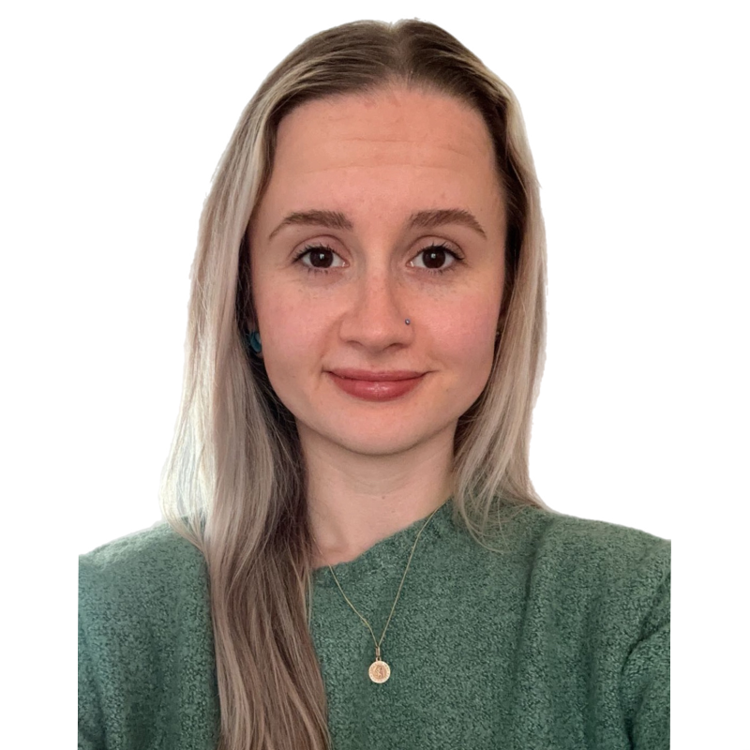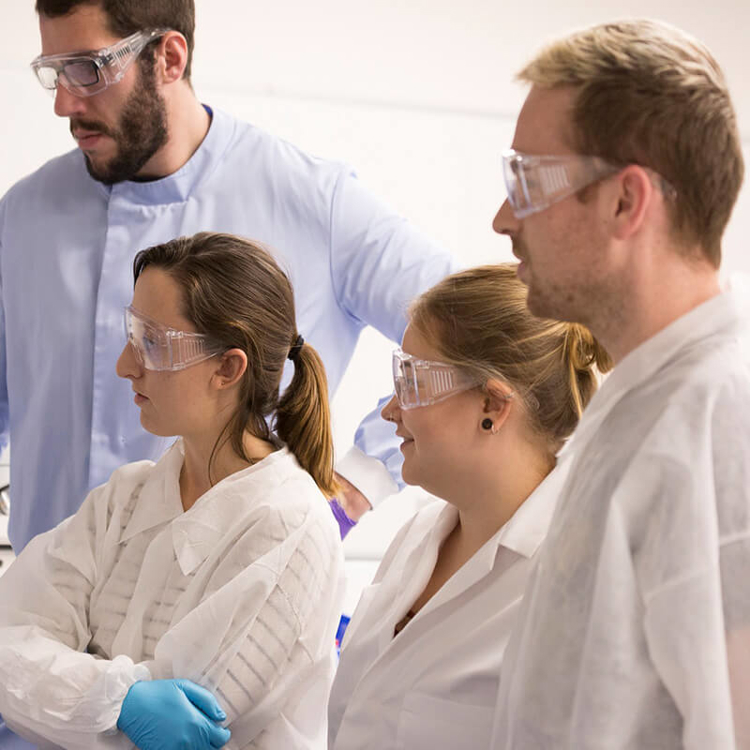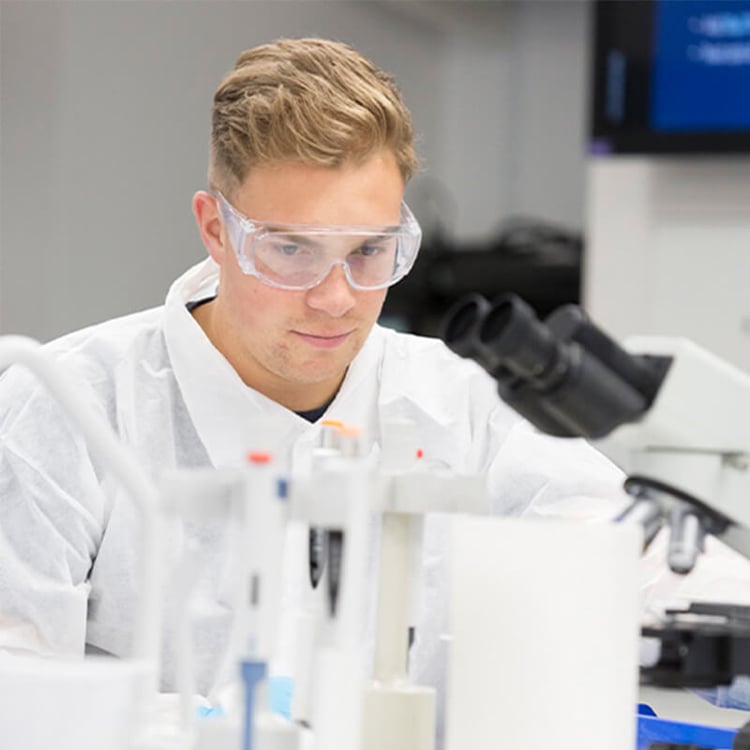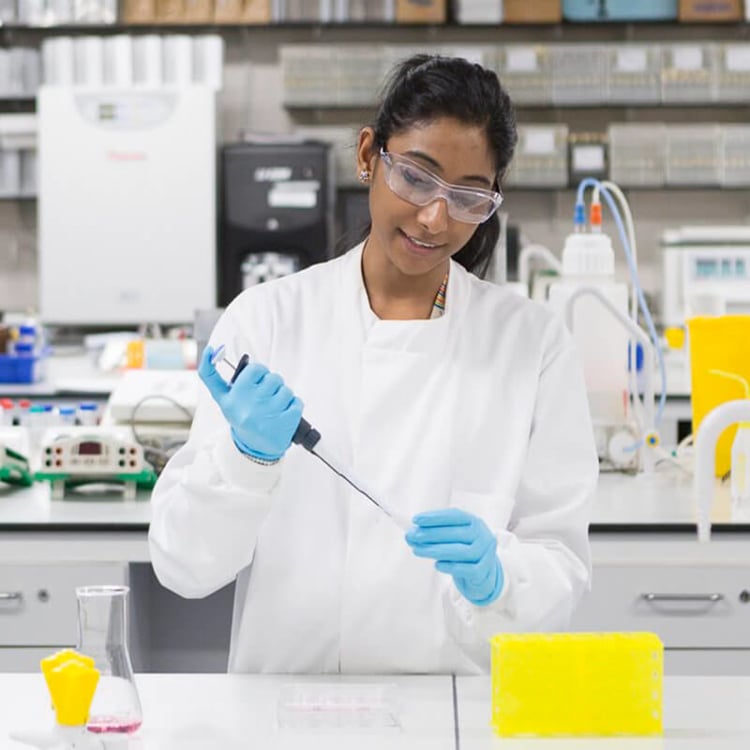/ Undergraduate /
Start date:
September 2025
You'll need:
112–128 UCAS points (or equivalent)
Foundation Year: 64–80 UCAS points (or equivalent)
UCAS Code:
NC62
NC64 (if choosing Foundation Year)

On-Campus Open Day
Saturday 12 July 2025
Improving human health has never been a bigger global challenge. Get the specialist, practical skills you need to aid in the treatment and recovery of injuries.
Did you know?
Top 3 modern university in London
(Complete University Guide 2025)

Ranked in the top 15% in the world
Times Higher Education Young University Rankings 2024

#8 in England for undergraduate student satisfaction
National Student Survey 2024

Foundation Year
This course can also be studied with a foundation year (September entry only).
Modules
Module details: In this module, you will study the key concepts and core foundations of human physiology and anatomy. You will gain an understanding of the structure and function of the human body, how body systems interlink, and how these relate to exercise and health. You will also work alongside students from a range of professional programmes, enhancing your learning experience.
Module details: In this module, you will study core research skills essential for academic success in your undergraduate studies. You will explore what it means to be a professional within the context of ethical, legal, and regulatory frameworks, and how these apply to your professional discipline.
Module details: In this module, you will study the theoretical principles and practical skills required to assess and manage acute trauma, ranging from life-threatening injuries to common sporting injuries. You will also learn soft tissue therapy techniques for hands-on massage treatment, providing you with the skills to manage various injuries effectively.
Module details: In this module, you will study the clinical assessment of upper and lower limb injuries. You will develop proficiency in taking effective subjective histories, conducting objective assessments, and applying clinical reasoning to identify musculoskeletal injuries. The module will also cover pathophysiology, injury mechanisms, and risk factors, preparing you for evidence-based rehabilitation.
Module details: In this module, you will study exercise physiology, health screening, and performance training. You will learn how to assess, monitor, and design inclusive interventions for diverse populations, ranging from elite athletes to individuals with health conditions. The module is aligned with CIMSPA professional standards, including gym instructor, personal trainer, and long-term condition management.
Module details: In this module, you will study how to provide a comprehensive subjective history and develop assessment skills for spinal conditions and injuries. You will explore risk factors such as movement patterns, psychological state, nutritional demands, and environmental conditions, all of which can influence injury and recovery in athletes.
Module details: In this module, you will study research and data analysis techniques, developing your critical awareness. You will explore both quantitative and qualitative research designs, data presentation and critique, and learn how to effectively engage with scientific and non-scientific literature.
Module details: In this module, you will study the theoretical and practical aspects of planning and implementing safe, effective, and progressive rehabilitation programmes. You will focus on addressing individual patient needs, integrating early, intermediate, and late-stage rehabilitation principles to optimise recovery and minimise the risk of re-injury.
This course offers all students the option of a one-year paid work placement, to boost your employability even further. If you choose this route, you will take the placement following year two of your course, and then return to complete your degree.
Why take a placement?
A placement year is the perfect opportunity to gain valuable work experience, to build on the career skills we will teach you on this degree. The connections you make on the placement will improve your career prospects further, and equip you with the skills you need to secure graduate-level employment.
How we support you
The University's Placement and Work Experience Team are experts at helping you to secure a placement. They will work closely with you from the start, helping you research potential employers, discover placement opportunities, create and pitch your CV, and will coach you to perform well in interviews. We aren't able to guarantee a placement, but our sector-leading advisors will give you the best possible chance of securing one.
Find out more about how we'll support you
We understand that your plans might change once you start your programme. If you decide not to do a placement, you will have the option of completing the three year version of your programme.
Whatever your choice, you will have access to many opportunities for work experience through our Placement and Work Experience Team, and access to face-to-face and 24/7 online careers support.
Module details: In this module, you will study advanced manual therapy techniques, consolidating theoretical principles and developing practical skills. You will integrate evidence-based assessment, treatment, and rehabilitation strategies, with a focus on clinical reasoning, hands-on techniques, and emerging technologies. This module prepares you for real-world professional practice in manual therapy.
Module details: In this module, you will study advanced clinical reasoning, assessment, treatment, and rehabilitation skills, enhancing your sports therapy practice. You will engage in evidence-based strategies for injury prevention, emergency care, rehabilitation programming, and professional practice, preparing you for real-world settings and working with specific populations.
Module details: In this module, you will gain practical experience through a year-long clinical placement tailored to your career aspirations. You will apply your knowledge in real-world settings and complete your sports trauma qualification, further enhancing your CV and preparing you for the industry.
Module details: In this module, you will undertake a sustained and rigorous research project, applying scientific techniques for investigation and analysis. You will select a research topic in consultation with your supervising tutor, relevant to your degree discipline, and carry out the project, gaining valuable research experience.
This course offers a foundation year, which takes place at the beginning of your studies. Studying a foundation year will give you academic and practical experience, and a strong introduction to your subject, ensuring you succeed on your undergraduate degree.
30 credits
You will develop your core academic and integrated English language skills of speaking, listening, reading and writing. You will become familiar with key academic skills and concepts, such as referencing methods and awareness of academic integrity and tone. You will apply these skills and knowledge to both broad topics and also your chosen subject pathway.
Teaching and learning
You will be required to actively engage in on-campus learning for up to 10 hours a week.
You will be taught through a full range of teaching and learning methods, which include lectures, seminars, workshops, discussion groups, group directed tasks and presentations. This will enable you to learn from your peers and tutors in both structured and information settings.
You will be encouraged to think creatively about your approach to learning and discussions with your peers. You will also have access to recordings, resources, links and signposting through Moodle to enrich your learning.
Assessment
You will be assessed through group and individual presentations, comparative and reflective essays, multiple choice exams, coursework and reports, oral exams, portfolios, case studies and blogs.
30 credits
You will develop your research, numeracy and information technology skills. You will investigate the difference between primary and secondary research, conduct your own research project and demonstrate your findings through data analysis. You will also develop your awareness of equality, diversion and inclusion in the UK, through a real-world issue; discrimination in the workplace.
Teaching and learning
You will be required to actively engage in on-campus learning for up to 10 hours a week.
You will be taught through a full range of teaching and learning methods, which include lectures, seminars, workshops, discussion groups, group directed tasks and presentations. This will enable you to learn from your peers and tutors in both structured and information settings.
You will be encouraged to think creatively about your approach to learning and discussions with your peers. You will also have access to recordings, resources, links and signposting through Moodle to enrich your learning.
Assessment
You will be assessed through group and individual presentations, comparative and reflective essays, multiple choice exams, coursework and reports, oral exams, portfolios, case studies and blogs.
30 credits
This module provides you with an integrated exploration of human physiology and nutrition, offering a comprehensive understanding of how the human body functions and the critical role of nutrition in supporting health and wellbeing. It examines the interplay between physiological processes and nutritional requirements, highlighting their importance in maintaining homeostasis, supporting growth, and optimizing performance.
The module begins with foundational topics, such as cellular structure, tissue types, and the anatomy and physiology of key systems, including the digestive, cardiovascular, and respiratory systems. You will then delve into the principles of energy balance, metabolism, and hormonal regulation, exploring the roles of macronutrients, vitamins, and minerals in human health.
Other key topics include fluid and electrolyte balance, the relationship between nutrition and immune function, and the nutritional demands of exercise and physical activity.
By the end of the module, you will be equipped with the foundational knowledge and practical skills necessary to apply physiological and nutritional principles to health promotion, disease prevention, and performance optimisation.
Teaching and learning
Through a combination of lectures, practical sessions, and discussions, you will develop the ability to critically analyse the integration of physiology and nutrition in promoting health. You will also gain insight into the consequences of imbalances, such as nutrient deficiencies, metabolic disorders, and the impact of malnutrition on the immune system.
The teaching delivery for each module consists of one, one-three-hour lecture and one, two-hour seminar per week. Lectures will cover core indicative content, while seminars will consist of research workshops, small group learning on relevant case studies and practical lab sessions.
You will also have an additional 30 minutes of online support each week, which will consist of formal preparation/review of lab sessions, or exam preparation (e.g. quizzes).
Assessment
This module will be assessed using an open book exam and a case study report.
50% - open book multiple choice exam, consisting of 30 questions.
50% - case study report, that explores the interaction between a physiological system and nutrition in maintaining health or contributing to disease.
30 credits
This module will explore critical aspects of research in Sports Science, Management and Therapy through methods of scientific thinking, techniques and experimental design, and will provide an opportunity to investigate the use of several techniques in all three disciplines.
You will be encouraged to explore correlational and experimental methods, the role of statistics, scientific argumentation and ethical working practices in relation to current scientific topics as reflected in news reports, recent academic publications and historical case studies. You will also be encouraged to critically debate relevant topics in sport and evaluate the need for rigorous quantitative and qualitative evidence in sports research.
You will begin with an introduction to the importance of evidence-based practice and the scientific method, progressing to an exploration of qualitative and quantitative research designs, data collection techniques, and ethical considerations. You will also gain hands-on experience with statistical analysis and the use of technological tools in sports research, such as wearable devices and performance monitoring equipment.
Teaching and learning
The module emphasises the development of professional communication skills, including scientific writing, data presentation, and effective poster presentations. Through workshops, case studies, and discussions, you will learn to identify potential biases and limitations in research, critically assess findings, and communicate results in a clear and impactful manner.
The teaching delivery for each module consists of one, one-three-hour lecture and one, two-hour seminar per week.
You will have a diverse learning experience of interactive workshops, case studies, practical exercises, group discussions, problem-based learning and guest speakers.
You will also have an additional 30 minutes of online digital support each week to enhance your understanding and learning.
Assessment
This module will be assessed using an information poster and reflections and a research proposal.
30% - informative poster, you will create a research poster that critically examines two contrasting prospectives on a chosen sports research topic.
70% - research proposal, develop a detailed research proposal on a specific sports-related topic of your choice.
These modules are those we currently offer and may be subject to change.

Skills
Make a difference to human lives with a degree in sports therapy.
This programme is aimed at students wanting to become Sports Therapists. A Sports Therapist, who is a Member of The Society of Sports Therapists, is an Allied Health Professional who has the knowledge, skills and ability to:
- Assess individuals for a range of conditions and injuries.
- Evaluate various on field scenarios and administer appropriate management (including basic life support) and return to activity decisions for acute trauma.
- Aid in return to sport and enhance overall performance.
- Devise sport-specific programmes to prepare athletes for sport participation and implement protocols to reduce the likelihood of injury.
- Refer to other healthcare professionals where appropriate.
As part of your degree, you must complete 200 hours of clinical placement. The university will support you in securing a suitable placement, which may take place in a range of sports and clinical settings. These opportunities will not only provide you with first-hand experience of the realities of sports therapy alongside skillful professionals, but also allow you to utilise the knowledge and skills you have developed throughout your studies in real-life scenarios.
Along with practical skills (analytical and qualitative), you’ll develop the attributes you need to succeed in the workplace, including:
- Written and spoken communication
- Problem-solving
- Teamwork
- Attention to detail.
You’ll also gain an understanding of the ethics and best practice involved in working with patients.
Your employability is our priority from day one - we have established links with local organisation and sports clubs, enabling opportunities for excellent student placements. Such links currently include Crystal Palace Football, Richmond Club and Rosslyn Park Rugby Club.
Learning
Experience a dynamic, contemporary curriculum in state-of-the-art facilities.
- Sport and exercise science labs equipped with start of the art equipment for assessing human physiology and biomechanics
- Newly developed Allied Health and Nursing centre, equipped with simulation wards and consultation rooms
- On-campus sports facilities, such as sports hall and gymnasium
- High-spec computer suites, supported by a team of expert laboratory and IT technicians.
In Year 3, you’ll have the chance to shape your own studies by conducting research on a self-selected topic. This enables you to explore and develop current knowledge in a chosen area of sports therapy, or sports and exercise science before you graduate.
Working in both small groups and individually, you’ll enjoy a mix of lectures and practicals as you work through progressive modules, including:
- Biomechanics analysis and movement
- Fundamentals of exercise physiology
- Sports massage
- Exercise therapy
- Advanced trauma management

Leah Bell
My name is Leah and I am a lecturer in Sports Therapy at the University of Roehampton. You will meet me in your first semester on the ‘Functional Anatomy’ and ‘Soft Tissue Therapy’ modules, as well as other clinical assessment, rehabilitation and therapy modules throughout the rest of your degree.
I studied ‘Sports Conditioning, Rehabilitation and Massage’ BSc, followed by completing my MSc in Sports Rehabilitation (Pre-registration), and am a registered member of the ‘British Association of Sport Rehabilitators and Trainers’ (BASRaT) and the ‘Sports Massage Association’ (SMA).
I have worked in a range of settings and have been fortunate to have many opportunities to utilise my sports therapy skills. I have worked providing pitch side first aid and sports injury management with many sports including football, kickboxing, field hockey and American football, however most of my experience comes from working with rugby teams. This includes local teams covering training and game days, as well as working with private school teams, and even professional sport, having the opportunity to work with the Australian Rugby Union Team. "

Assessment
Push yourself further with real-world assignments.
Throughout the course, you’ll experience a wide range of assessments that enhance your understanding and practical skills, while giving you a taste of industry practices.
These include:
- online tests
- written examinations
- laboratory reports
- presentations
- essays
- research and data collection projects
You’ll leave Roehampton with an in-depth understanding of both the theory and the hands-on applications of biomedical science, ready to take the next step.
Careers
Shape the future of public health.
If you’re ready to learn, we’ll help you gain the confidence and opportunities to achieve.
Our graduates go on to work in different specialisms within sports sciences/allied health, such as:
- Sports Therapist working in a range of settings including sports environments of different levels, or private and public clinical contexts.
- Postgraduate study in fields such as ‘Physiotherapy’ and ‘Strength and Conditioning’.
- Academia, whether this be from a research point-of-view or progressing into a lecturing role.

Many take on roles in the NHS and sports clubs and teams. Others choose to work with local communities to improve access to healthcare or as private therapists. (Starting salaries in private clinics and the NHS can be more than £20,000. If working for themselves, a sports therapist may charge up to £55 per hour).
With our BSc Sports Therapy degree, you can also continue to postgraduate study, specialising in research, clinical practice, or management within the sports and exercise field. Or take courses that enhance your skillset and develop your CPD portfolio, to prepare you for patient-facing healthcare professions.
Our careers team is available to support you from the start of your studies until after you graduate. We will help you build your CV, prepare for interviews, and meet and learn from successful graduates working at the top of their careers. You’ll also have opportunities to work with our partners across London and beyond, and to attend a Roehampton jobs fair where you can find out about graduate opportunities and meet employers.
Open days
Get a real taste of our campus, community and what it’s like to study at Roehampton
Applying
Full-time UK undergraduate students apply through UCAS.
Entry tariff
112–128 UCAS points (or equivalent)
Foundation Year: 64–80 UCAS points (or equivalent)
Looking to work out your UCAS points or find out about our entry requirements? Find out more.
When we consider applications to study with us, we form a complete view of your achievements to date, and future potential, and can offer flexibility in entry requirements. Find out more about our Contextual Offer scheme.
Specific entry requirements
A-level in either PE, Human Biology, Biology; or a BTEC in Sport or a Sport-related area such as Health, that includes Anatomy and physiology units. GCSE (C/4) in English and Mathematics.
General entry requirements
September 2025 entry tuition fees
UK (home) tuition fees
Undergraduate degree: £9,535
Foundation Year: £9,535
We offer a wide range of scholarships and bursaries. See our financial support pages for UK students.
We also provide other ways to support the cost of living, including free buses and on-campus car parking, hardship support and some of the most affordable student accommodation and catering in London. Find out more about how we can support you.
International undergraduate students apply through our direct application system.
Entry tariff
112–128 UCAS points (or equivalent)
Foundation Year: 64–80 UCAS points (or equivalent)
Looking to work out your UCAS points or find out about our entry requirements? Find out more.
When we consider applications to study with us, we form a complete view of your achievements to date, and future potential, and can offer flexibility in entry requirements. Find out more about our Contextual Offer scheme.
Specific entry requirements
A-level in either PE, Human Biology, Biology; or a BTEC in Sport or a Sport-related area such as Health, that includes Anatomy and physiology units. GCSE (C/4) in English and Mathematics.
General entry requirements
September 2025 entry tuition fees
EU and international tuition fees
Undergraduate degree: £16,950
Foundation Year: £16,950
International Foundation Pathway: £16,950
We offer a wide range of scholarships and bursaries. See our financial support pages for international students.
We also provide other ways to support the cost of living, including free buses and on-campus car parking, hardship support and some of the most affordable student accommodation and catering in London. Find out more about how we can support you.









